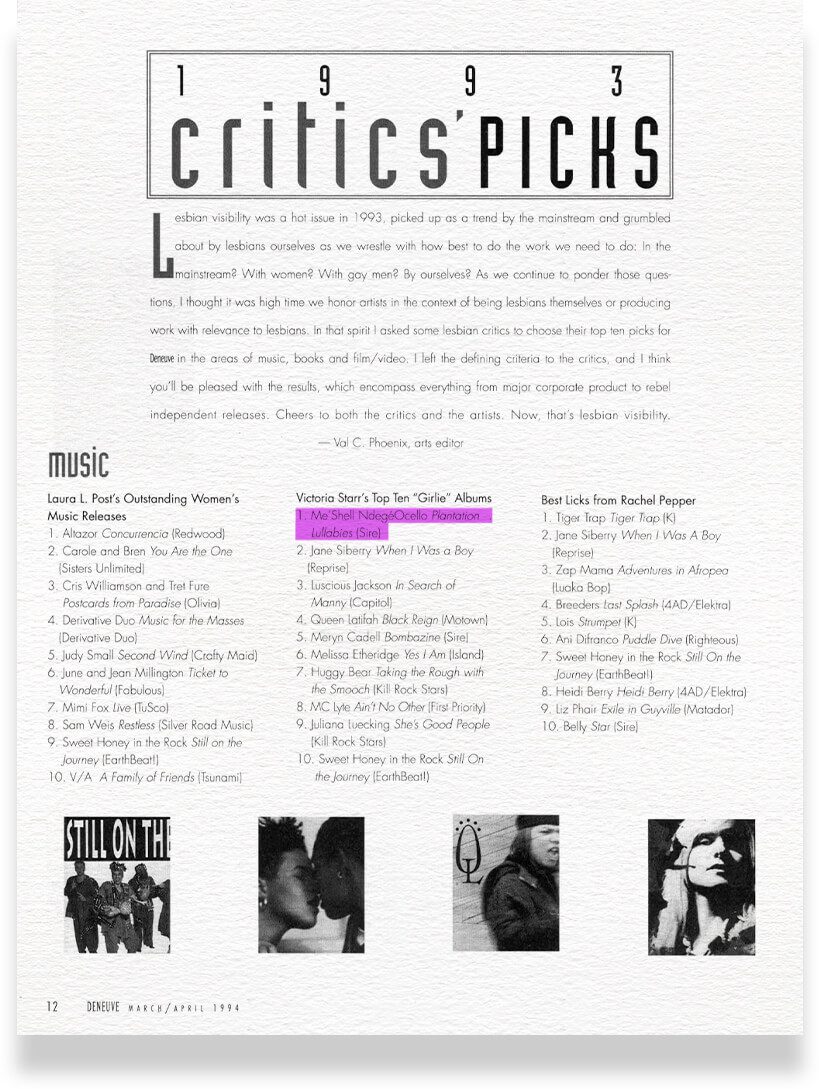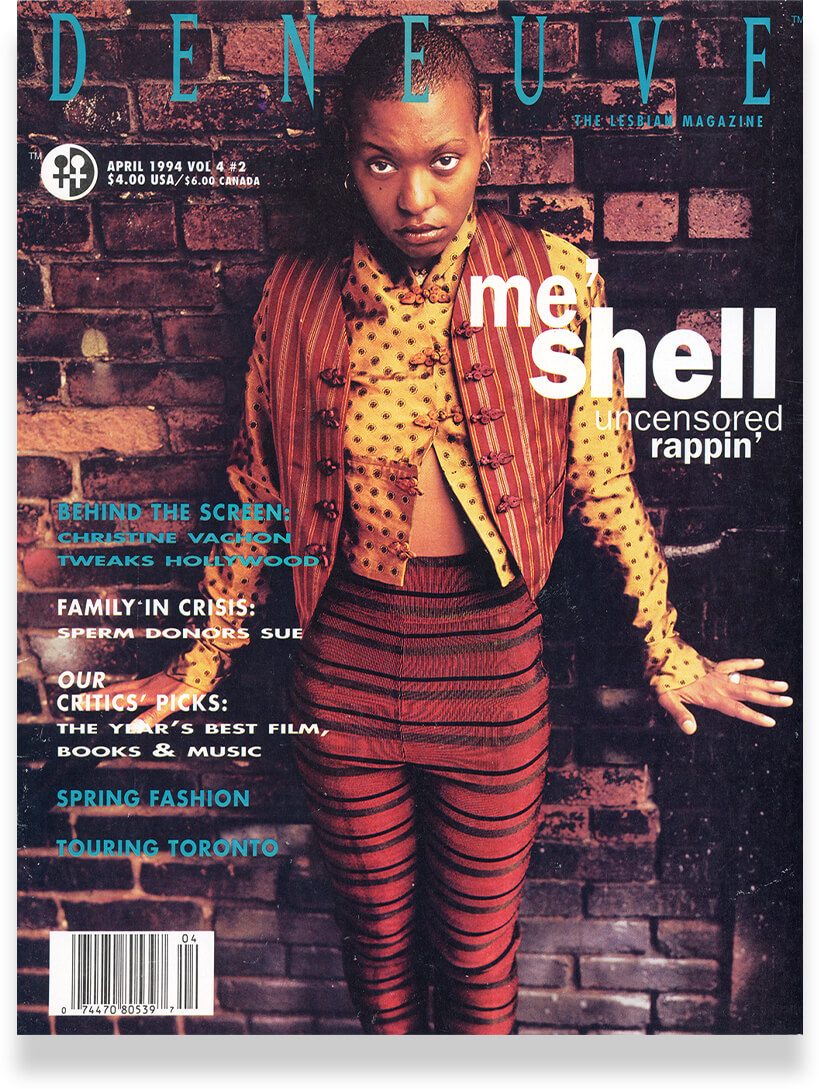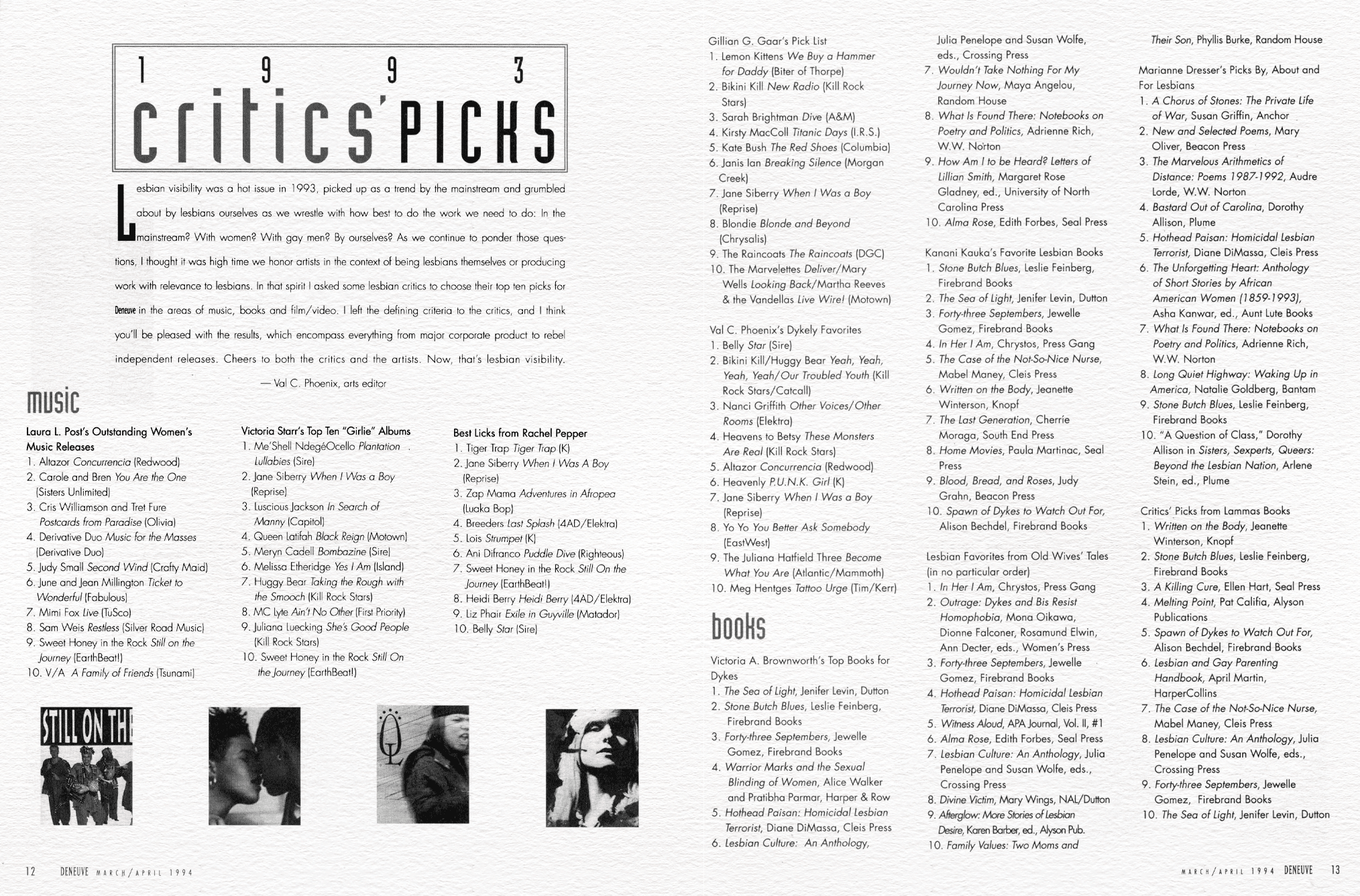Curve Archivist Julia Rosenzweig traces the 30-year legacy of Meshell Ndegeocello.

CRITICS PICKS 193, DENEUVE MAGAZINE, APRIL 1994
Music is and has always been integral to lesbian culture-just think Lilith Fair and the Michigan Womyn’s Festival-so it’s only natural that Curve, the best-selling lesbian magazine, has a legacy of featuring queer musicians and chronicling their work. Indeed, most summers, Curve magazine published an issue dedicated primarily to music. Browse the Curve Archive special issues to see all of them!
In 1994, Curve magazine staff (then Deneuve) published lists of their favorite songs, albums, and artists of 1993 (or as they were titled: “Best Licks” and “Dykely Favorites”). Number one on Deneuve contributor Victoria Starr’s Top Ten “Girlie” Albums is Meshell Ndegeocello’s debut album Plantation Lullabies.
Meshell Ndegeocello is a Grammy and GLAAD award-winning singer-songwriter, bassist, and poet. You may be familiar with her chart-topping 1993 single “If That’s Your Boyfriend (He Wasn’t Last Night)” or “Wild Night,” a remake of a Van Morrison song that she recorded with John Mellencamp. Curve magazine founder Franco Stevens recalls that “If That’s Your Boyfriend” was played on repeat in the office for months after the piece was written. Even if you don’t know those songs, you have certainly heard her wicked bass skills on songs by the Indigo Girls, Chaka Khan, the Rolling Stones, Alanis Morissette, and Zap Mama (to name just a few!).

DENEUVE MAGAZINE, VOLUME 4, ISSUE 2, APRIL 1994
The cover of Deneuve magazine in April 1994 features Meshell standing in front of a brick wall and staring into the camera lens, vulnerable yet strong. The profile of her in that issue describes her as someone who “resists attempts to classify, boldly staking out her own territory and offering strong if occasionally contradictory – opinions on everything from sexual identity to standards of beauty.” That article, “Me’shell Un-Censored Un-Fettered” by Val C. Phoenix, is a frank cover of the artist; cool yet humble, multi-talented, openly queer, and a keen observer of the societal constructs that shape race, gender, and sexuality. Phoenix describes the topic of Ndegeocello’s debut album concisely:
“The subject matter on Plantation Lullabies breaks down roughly into social criticism and sex. One of the most striking songs is “Shoot’n Up and Gett’n High,” which burns with anger at society: “Revolution against this racist institution.. Dehumanize me, set aside and criticize. I’m livin’ in the midst of genocide,” declares Me’Shell, demanding, “Would you die for your rights?”
Ndegeocello checked back in with Curve magazine in December 2003, on the eve of the release of her instrumental jazz album Dance of the Infidels. In the interview, Meshell discusses her religious practice, her break-up with writer/activist Rebecca Walker, and the challenges of being in the public eye. You can read the piece here.
Curve magazine was proud to amplify Meshell’s distinctive voice in 1994 and 2003 and continues to highlight her work today in this digital issue. She even returned the favor by appearing in the documentary Ahead of the Curve, which tells Curve‘s origin story, to support and uplift Curve‘s legacy of being a hub of lesbian culture and information.
If you haven’t seen Ahead of the Curve, watch it on Netflix. If you would like to read the article “Me’shell Un-Censored Un-Fettered,” or any of Curve magazine’s 30 years of printed issues, visit our Curve Archive site. And, if you are curious about the other musicians on those previously mentioned lists, we’ve provided them for you here.
Happy listening!
